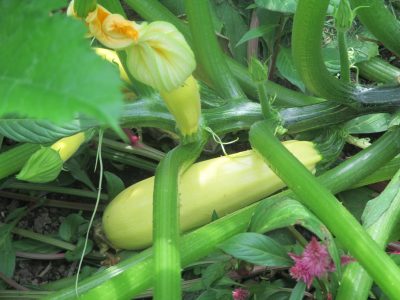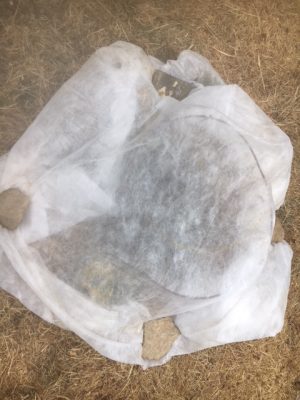Celebrate the Year of the Squash – 2024
By Dawn Pettinelli, UConn Home & Garden Education Center
Tomatoes and peppers certainly have a wide and varied selection of species, cultivars and varieties but I think squash beats them both out when it comes to sizes, shapes, colors and uses. Perhaps that’s one reason why the National Gardening Bureau decided to make 2024 the year of the squash.
Squash is an ancient crop possibly grown as long as 10,000 years ago in Central and South America. The name ‘squash’ was derived from a Narragansett word, ‘askutasquash’ meaning eaten uncooked or raw. All squash – summer squash, winter squash, pumpkins and gourds – belong to the Cucurbitaceae family. Vining types were included as one of the three sisters (corn, beans & squash) in indigenous plantings as each provides a benefit for the other two plants.
Not only are squash easy to grow but many types are a great source of vitamins, minerals and carotenes. Three main groups of squash are commonly found in home gardens. Cucurbita pepo includes zucchini, summer squash and spaghetti squash varieties all with a soft, edible shell and seeds. These do not store well and are typically consumed within a few days of picking.

C. maxima is a large group with pumpkins and easily recognized winter squashes like buttercup, Hubbard, and turban varieties. Mature fruits have tough skins that would be peeled, their seeds are hard but could be enjoyed roasted, and they can store for months.
C. moschata includes butternut, a favorite of many, as well as futsu and a tetsukabuto hybrid. A great feature of this species is that they are resistant to squash vine borer, a pesky moth that lays eggs at the base of plants. Larvae that hatch from the eggs burrow into stems usually to the demise of the plant. I’ve been excited about growing ‘Autumn Frost’ as it has that classic butternut taste, but fruits are only 5 to 6 inches wide and high making it perfect for small families or stuffing.
While you can purchase transplants of both summer and winter squash at many places selling seedlings come spring, there are so many fine, exciting varieties to choose from, I suggest starting with seeds. All varieties of squashes are warm season plants so wait until the soil temperature warms up to at least 65 F. Usually this is around Memorial Day but some years, it might be a week or so earlier. Seeds are planted one-half to 1 inch deep.
Like most vegetables, squash prefer a sunny site, well-drained soil fortified with organic matter, a soil pH in the mid 6s and adequate amounts of water during the growing season.
Depending on how large your garden is you may want to plant squash in rows or in hills. A hill is just a planting of 3 to 5 seeds. It does not need to be mounded. Many gardeners prefer the hill approach as some squash plants can get quite large and this saves some room. Personally, I like to plant one seed each of a green, a yellow, and a white cultivar of zucchini in a single hill for good looks and good eats. Another reason for planting in a hill is that the squash varieties that are susceptible to the squash vine borer could be kept under row cover until the borer season is over, usually around July 4th.

Usually, your zucchini and other summer squash start maturing about 50 days after they have germinated. Winter squash and pumpkins will take 80 to 105 days to mature. How quickly the summer squash grow is one of the wonders of nature. Be sure to check plants every 2 or 3 days and pick fruit when small and less seedy.
Most squash are monoecious which means male and female flowers are produced on the same plant. The male flowers are produced first and held on long stems to attract pollinators. Female flowers are closer to the crown and have mini-fruits at their base. It takes several visits from bees for pollination to occur. Fruits that are incompletely pollinated will shrivel and die. One golden zucchini, ‘Easy Pick Gold II’ is parthenocarpic, which means fruits can develop without fertilization.
Powdery mildew is a very common disease of cucurbits. Look for varieties labeled as resistant or plan on using low toxic control sprays such as neem oil, potassium bicarbonate or Serenade™.
As you’re planning this year’s vegetable garden and purchasing seeds, give a few different squash a try. If you have questions on growing squash or on other gardening topics, feel free to contact us, toll-free, at the UConn Home & Garden Education Center at (877) 486-6271, visit our website at www.homegarden.cahnr.uconn.edu or contact your local Cooperative Extension center.